This story originally appeared in i-D’s The Out Of Body Issue, no. 367, Spring 2022. Order your copy here.
David Macke is an artist and photographer based in New York, although he came both to the art world and to New York late. He grew up feeling like an outsider in rural America before moving to Spain to study poetry and then spending a stint working in the theatre when he finally moved to New York, before he slowly began to explore the world of photography. He started out simply by photographing his boyfriend and then, over the years, developed a practice creating images of other people, as well as doing extensive work in zine making with Printed Matter and creating drawings.
The relationships he built with the subjects he photographs are provoked by his ongoing investigation into sexuality and masculinity, where David’s practice begun to chart and reflect his own feelings and identity. Existing somewhere between the formal portrait and the offhand snapshot, his photography is in equal parts soft and tough – his work is direct but most often is really, simply, about the beauty of the people he photographs. To accompany the body of work presented on these pages, he is in conversation with friend and artist Anne Collier.
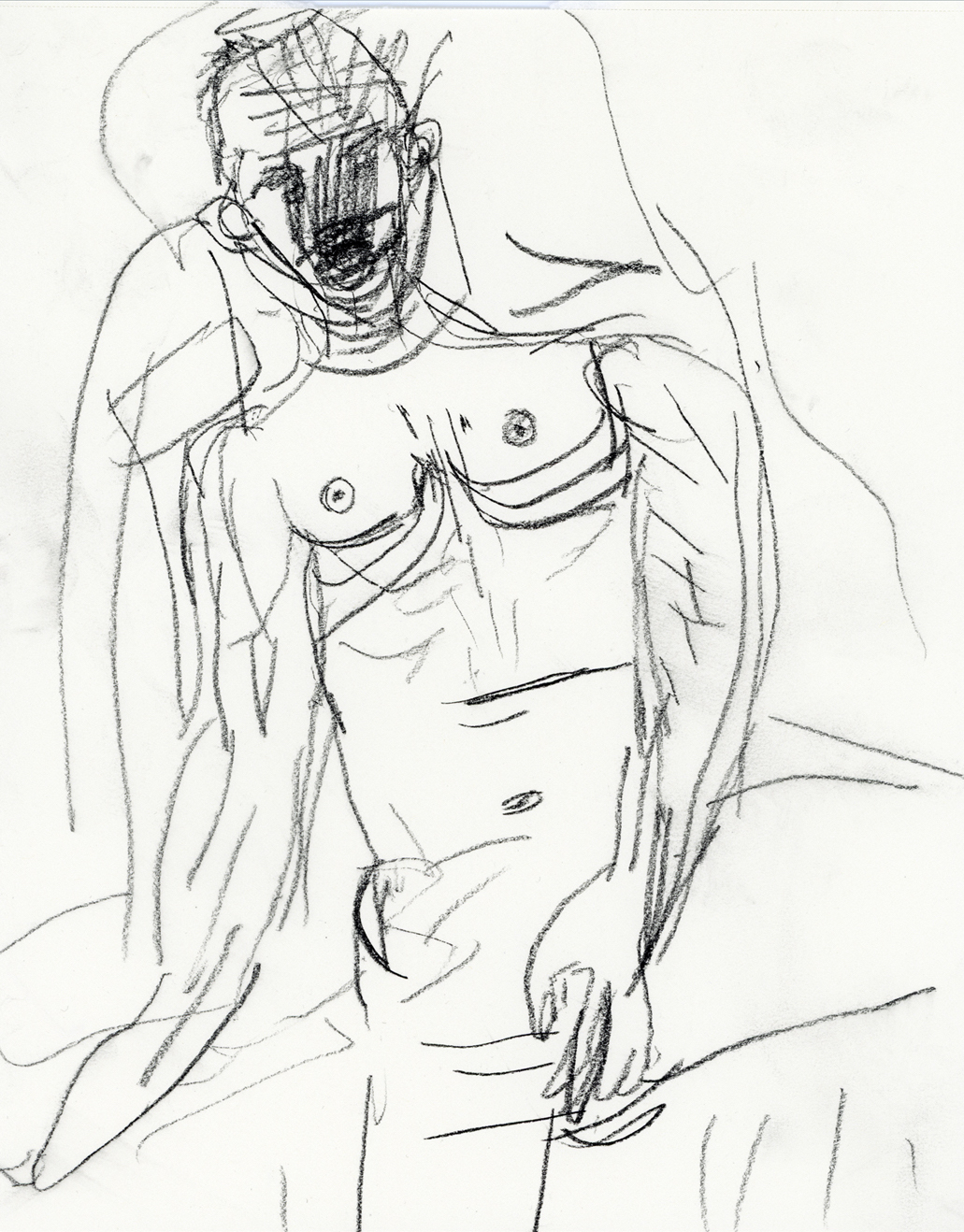
Anne Collier: I’m just going to start from the beginning because, in some ways, I actually don’t know a lot about you. I don’t even know where you grew up.
David Macke: I grew up in Yakima, Washington State, about two and a half hours east of Seattle. Yakima is in the middle of a valley, surrounded by mountains.
Anne: Was it a cool place to grow up?
David: I thought it was when I was growing up there.
Anne: You did?
David: I think a little. I was born in a town even tinier called Union Gap. My family are rodeo people.
Anne: Same.
David: Really?
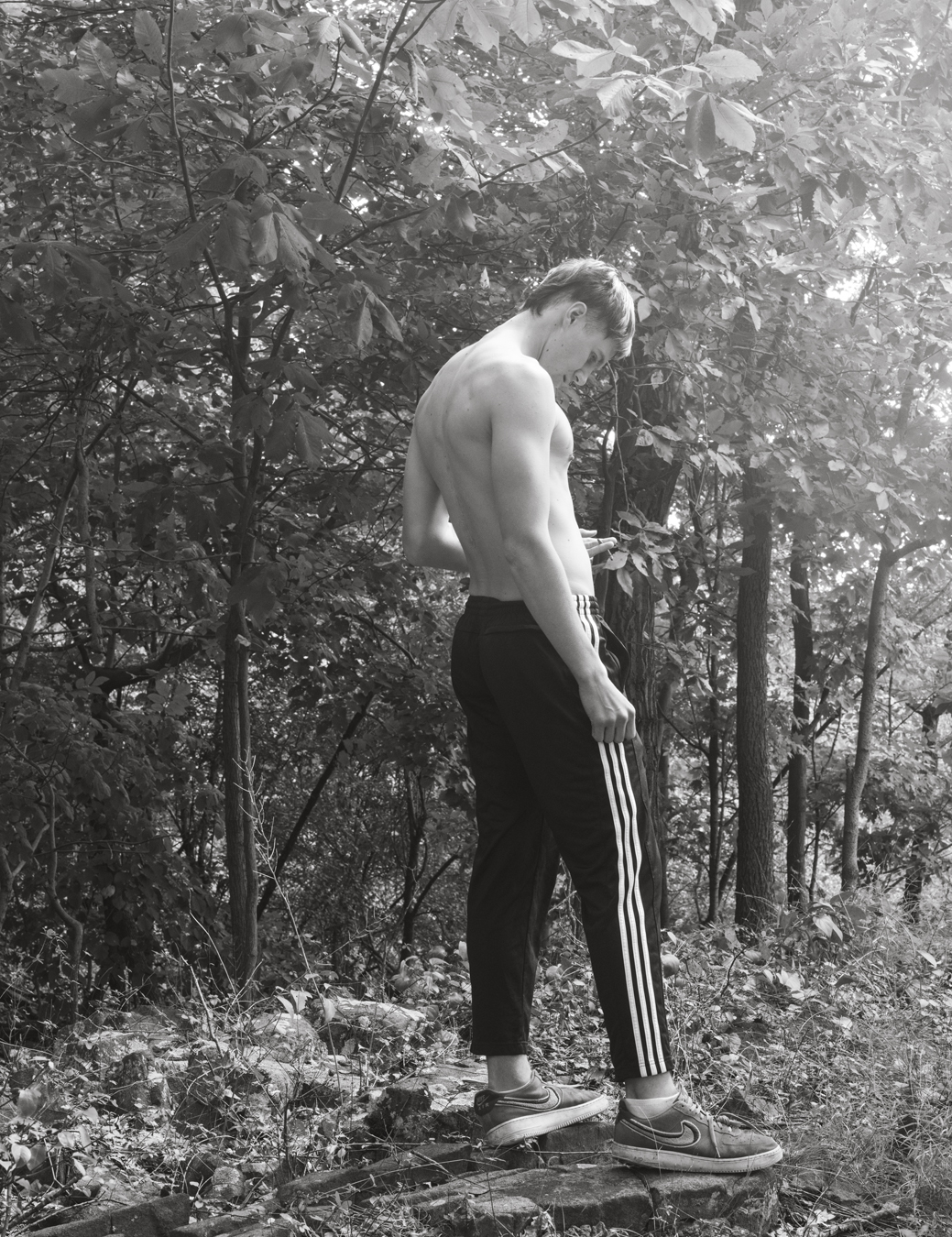
Anne: Yeah.
David: We used to ride bareback in the valley. I liked it for the most part.
Anne: So it was pretty?
David: It was very pretty, there was a lot of nature. I grew up fishing. My dad is a very big outdoorsman, but I always was attracted to the idea of living in the city.
Anne: Did you do those redneck sports? Like standing on a piece of wood and being dragged around behind a truck and stuff like that.
David: We did all that.
Anne: We did that too. Can you drive a tractor?
David: Probably. But I was always in resistance to that.
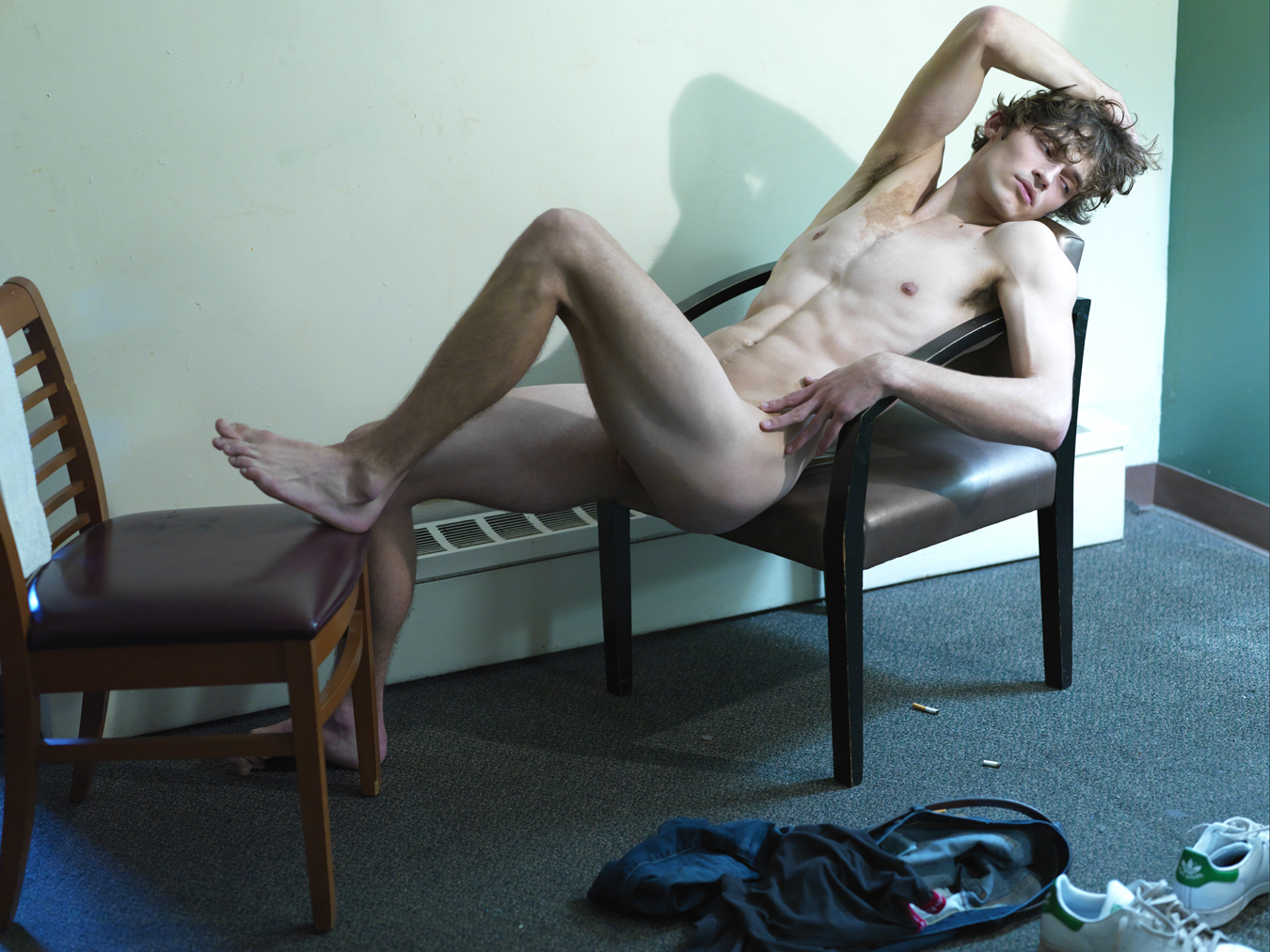
Anne: I’m from a very similar background, although I moved around all the time.
David: I had a group of friends who thought they were surfers even though we lived in this small valley town in the middle of nowhere. We made videos for local access TV, and we’d play characters. We had a fun upbringing in a small-town environment, for the most part.
Anne: So, how did you get your culture? How did that work out?
David: From my grandma. She was a worldly person, she travelled, and felt sophisticated to me – even though I didn’t really know what that meant. I was attracted to that.
Anne: Did you get into music then? Was that part of it too?
David: The first album I ever bought was Purple Rain and I remember all the girls at school wearing Michael Jackson buttons and things like that. Music was freedom, a way out.
Anne: And it’s also kind of how you find your people, right?
David: Yeah. You like the same music and feel like you’re part of something bigger.
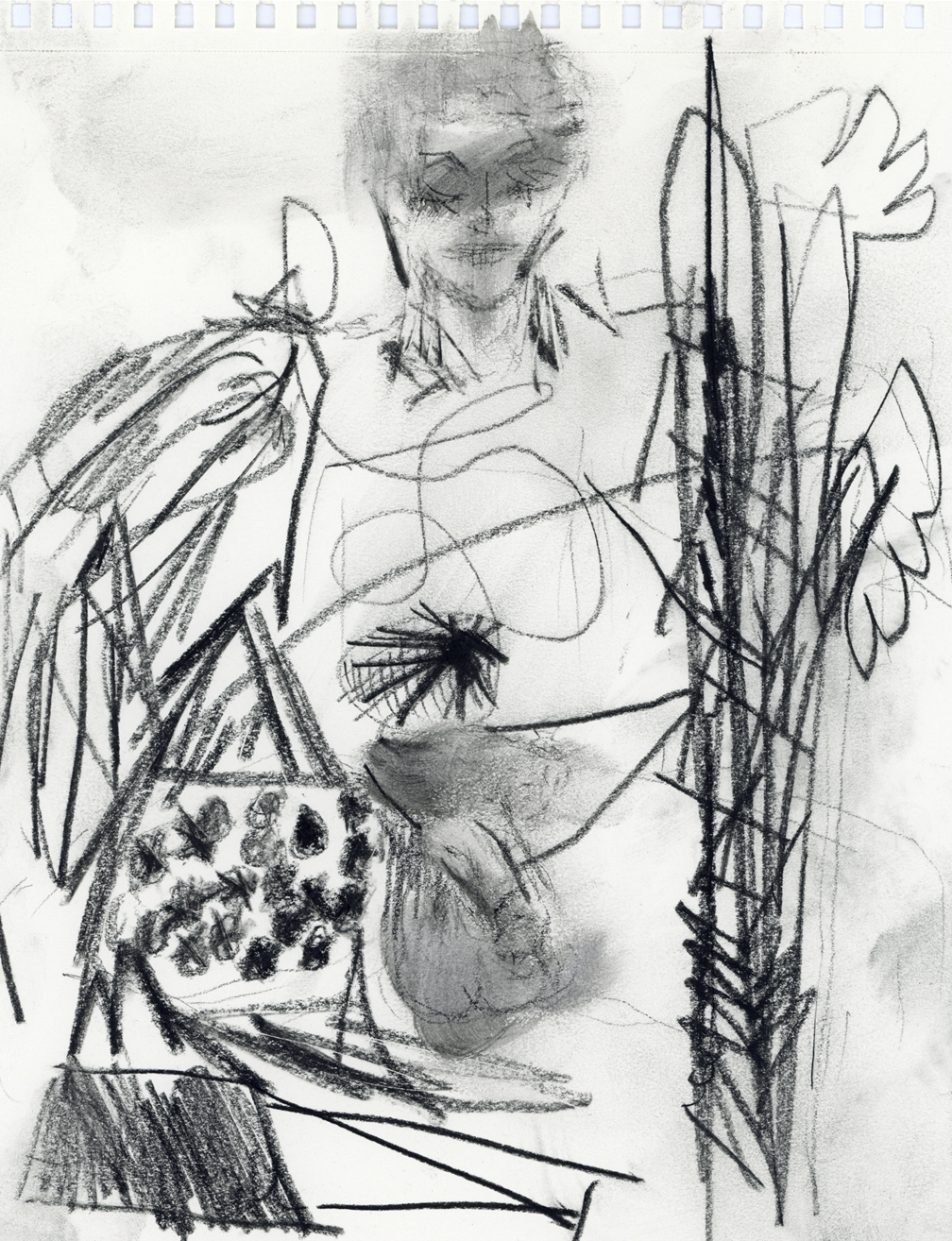
Anne: So, what would you say was your earliest collision with images?
David: It would be things like Tiger Beat, Teen Beat – things you would see in the supermarket aisle of a small town, like The National Enquirer and Vanity Fair. I didn’t grow up going to museums or galleries or things like that.
Anne: You’re kind of not really describing an environment where being gay is the most obvious thing, right?
David: I grew up in an environment where being gay was not an okay thing.
Anne: And did you know you were? If you don’t want to talk about this, you don’t have to –
David: No, I don’t mind. Nothing’s off-limits.
Anne: It’s in your work, I think.
David: Yeah, I grew up thinking that being gay was not okay and that if people found out that you were gay, you would be attacked and destroyed for it. And so, I did go through a lot of pain around that: growing up in a small town where people were really backwards, and also where you’re living the double standard of people seducing you, other guys, at the same time that…
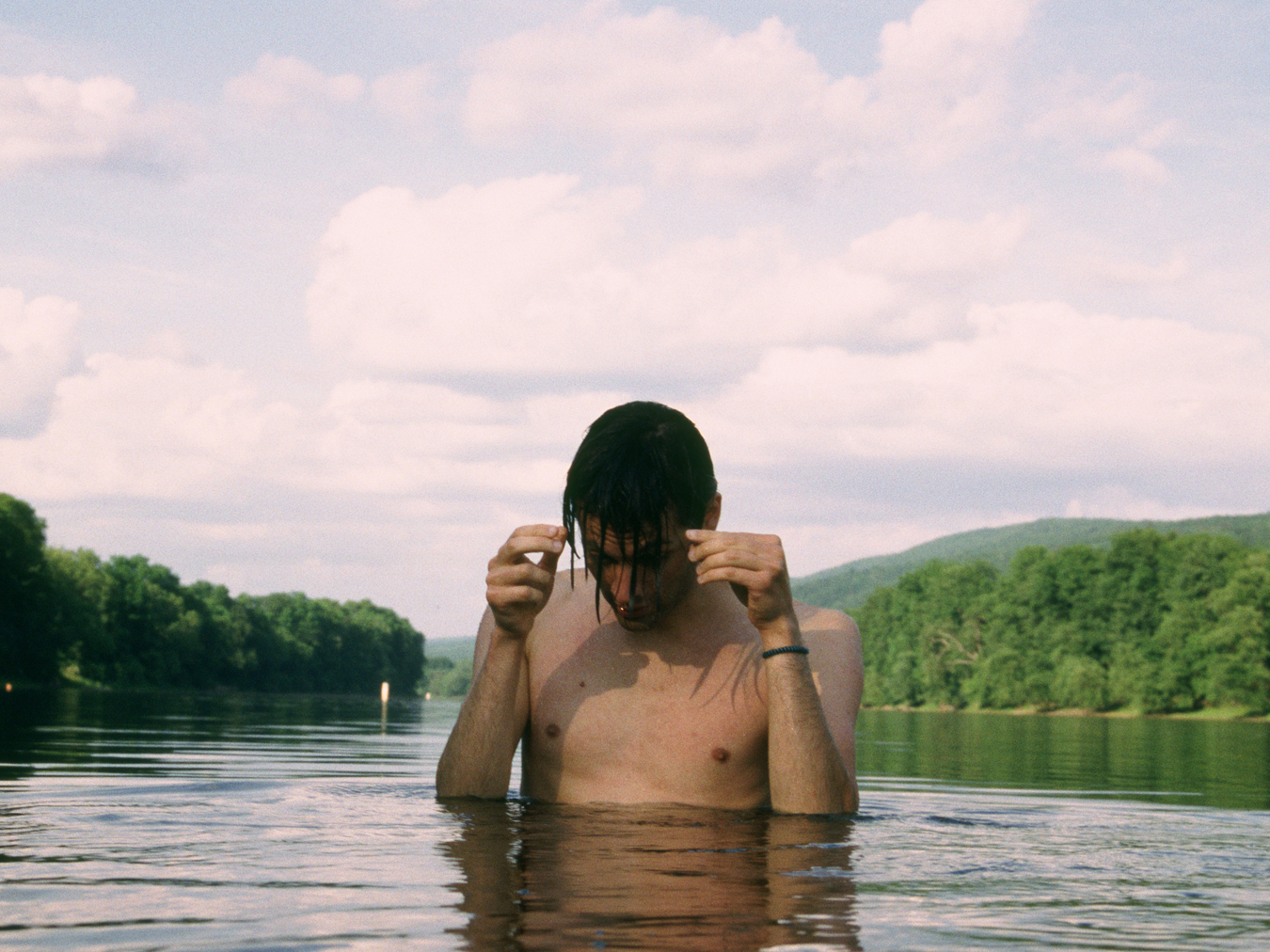
Anne: Other straight guys or?
David: Yeah.
Anne: Right.
David: Yeah… Essentially, when I first started making photographs, I was thinking about what it means to feel like a man – why I don’t feel like a man, and what even is a man? Then you have awakenings along the way, like, “Oh, I’m taking pictures of guys who, when I was growing up and looking at them, would’ve called me ‘fag’. But now they want me to take their picture because that can make them beautiful.” I don’t know what it’s like in those towns now, because I have a really hard time going back. I feel safer in the streets of New York than the streets of Yakima, Washington.
Anne: For a good reason.
David: Definitely.
Anne: So then, did you finish high school?
David: I finished high school. Then I went to Pacific Lutheran University. And then from there, I went to the University of Washington. I studied acting and performance. I was in a fraternity.
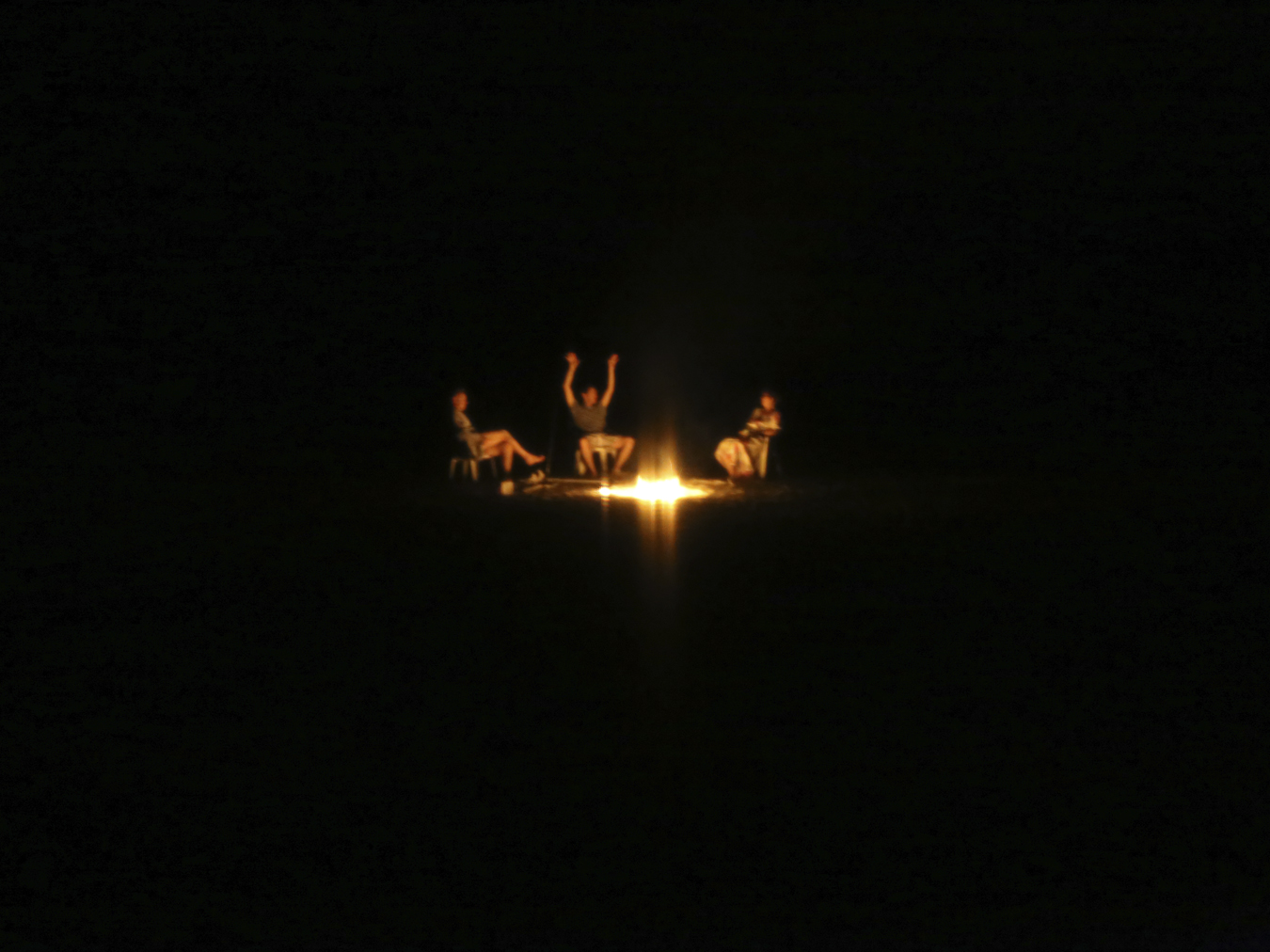
Anne: A weird one? Or a normal one? Did you get hazed?
David: I don’t remember being hazed, although I got kicked out for being too wild. I was really acting out masculinity then, trying to find somewhere that I fitted in on that scale. You’re automatically in this place where you’re living with all these men, and you have to get along. You form packs and groups, and that’s how you survive. That’s how I survived.
Anne: Was it like an experiment with hyper-masculinity?
David: I played football in high school and I did sports all through my childhood. My dad was the coach of the little league team and I always felt like I couldn’t measure up to what he would want, because he seemed so hyper-masculine. That was a big deal. Because if you’re born into an environment where things are valued that you don’t innately value in yourself, it’s really hard to survive in a way where you can develop a healthy attitude about your identity.
Anne: So then, you went to school, studied theatre, and then what happened?
David: And then I moved to Granada, Spain. Spain changed my life, because I started realising that when you speak another language, and there’s different words for different things, then you can see things in a completely different way.
Anne: What was the catalyst for you to start making images?
David: I didn’t start making images until I came to New York. After Spain, I went to LA. Then I moved to New York and started a theatre company.
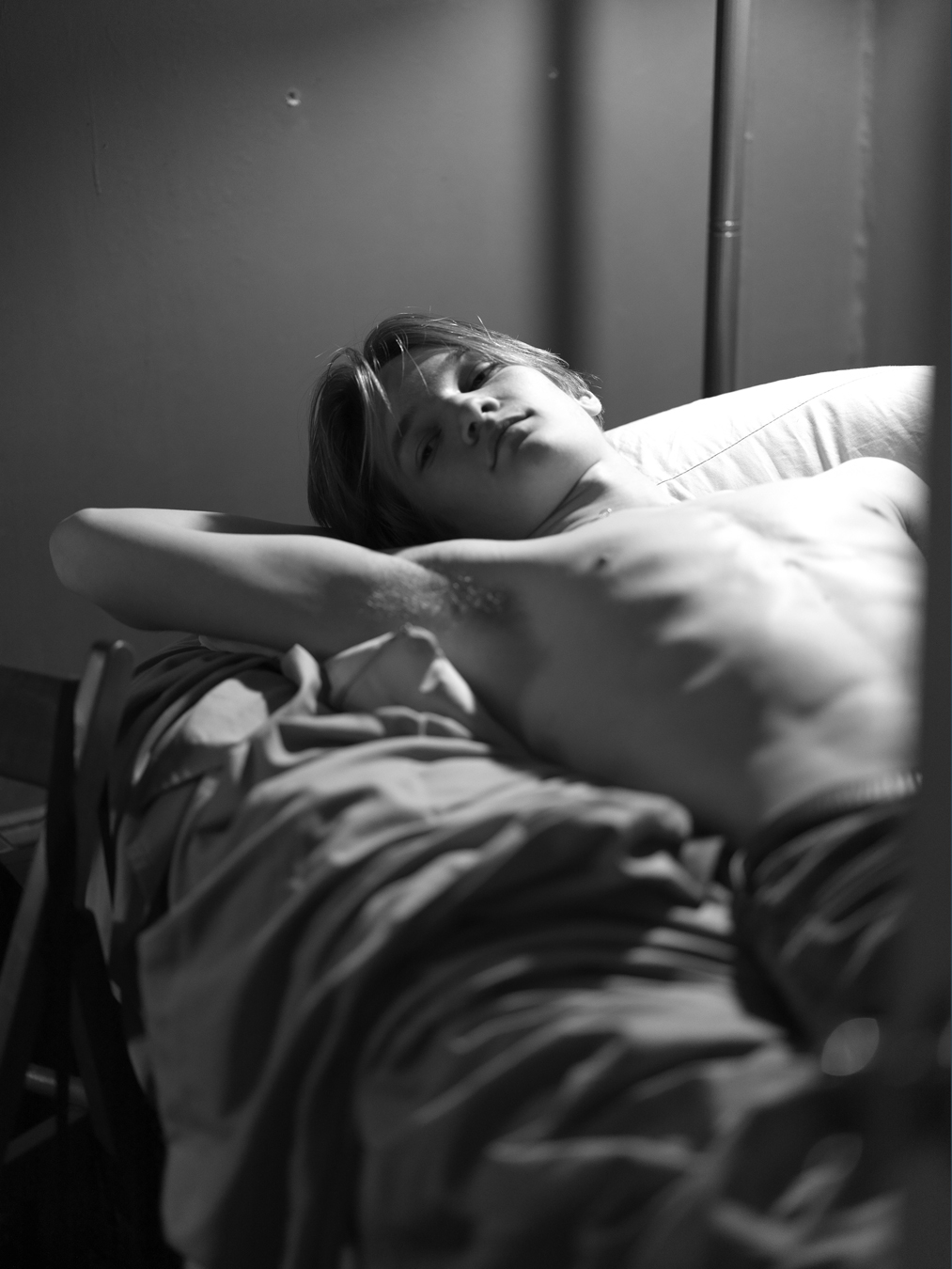
Anne: What!
David: Yeah, I used to have a theatre company. That’s how I met some of our mutual friends. But all the while, I was looking at fashion magazines. I’ve always been an artist, I’ve always drawn. I’ve always painted, always written poetry – I actually studied poetry in Spain – but when I got to New York I met my boyfriend and I started photographing him. This would’ve been 1999. I’m still with him now. He was the first person I photographed. And then I met our friend Jack Pierson, and through meeting him, as well as other artists, I started thinking about art differently.
Anne: What happened with the theatre?
David: The theatre was a conscious choice. I was running the company with a great group of people. We were doing it together and we were starting to have some success, but really I wanted to make things on my own. And I just dived really deep into this process of investigating what it means to be a man through photography. I shot about 300 guys over a few years, and then I realised I could be a photographer. I also, eventually, realised something about being a man within myself.
Anne: That’s amazing. What are you thinking about in your work now?
David: I’m thinking about identity more generally. I am just about to start a new project photographing women.
Anne: In a way, there’s a kind of weird quality to your work – I don’t know if you identify with that word or not. It’s almost like you’re not sure exactly what you’re looking at: is it a fashion image, a portrait, or a snapshot? A lot of people are trying too hard to be weird, but your work has that feeling naturally.
David: I’m definitely coming from an authentic and instinctual place. A lot of it is just about trusting the process of the connection between the person that I’m making the image of and myself. I’m not playing by any particular rules, just following the magic of the moment and respecting the person I’m photographing. I’m looking for some sort of authenticity and truth. Growing up I got called all sorts of things, being the person that I am, but at a certain point, I just embraced who I am and allowed it to be my strength.
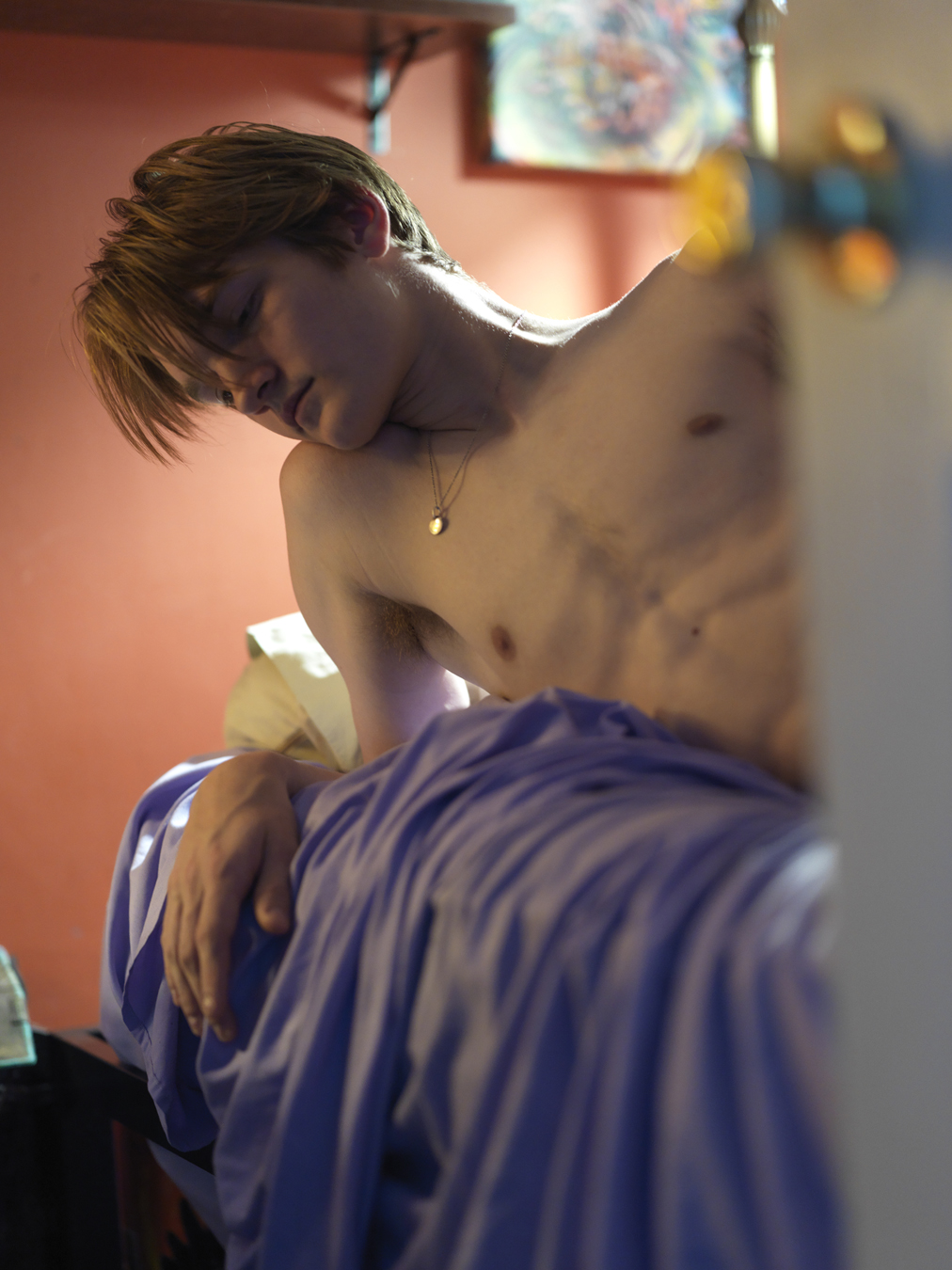
Anne: There’s a lot of nakedness and nudity in your work. Is that how you’re going to shoot women? Or do you know yet? And how do you see it relating to fashion?
David: Well, first of all, I love fashion, because I love the fantasy of creating another world that can contain magic.
Anne: There’s a theatre in it too, I think.
David: Exactly. I see all of it as performance. That’s how I’ve always approached it in my head. I hope my photographs have a theatricality to them, because I’m interested in this performance that everyone is doing all the time. What does it mean to show up as a man? And who gets to be held up as a man and who doesn’t? That’s what I’m kind of deconstructing and reconstructing in a lot of my images. But specifically, in terms of the nudity, I think it’s also about growing up in that small town and not apologising for wanting to make provocative things. There are a lot of pictures of nude women, and they are everywhere, and it’s seemed to be viewed much more acceptably than male nudity, to my mind, anyway.
Anne: Yeah, there’s a sense of everyday-ness and also a kind of fantasy at the same time in your work. I guess that’s where the weirdness happens, or the tension.
David: I’m not into making images where the model’s a prop and I’m just trying to take what I can from them. I want to celebrate their heart, and I also, ultimately, want to celebrate their beauty, because I make no apology about the fact that I’m in this to celebrate beauty. But beauty can be found in many, many, many, different ways.
Anne: So, what do you think your influences are in terms of image- making?
David: I pretty much pay attention to everything. I see all the art, uptown and downtown. I love movies. I love epic television. And then I love images themselves. The photographs that I’m most drawn to are photographs that express some sort of truth, that feel beautiful in ways maybe I didn’t think could be beautiful. I mean, how I experience art is probably like anyone: I just wait to see how it makes me feel. Does it hit me? And if it hits me, then I try to pay even more attention. Then I see where that feeling takes me, you know? I think a lot about filmmakers. I think a lot about films when I make images.
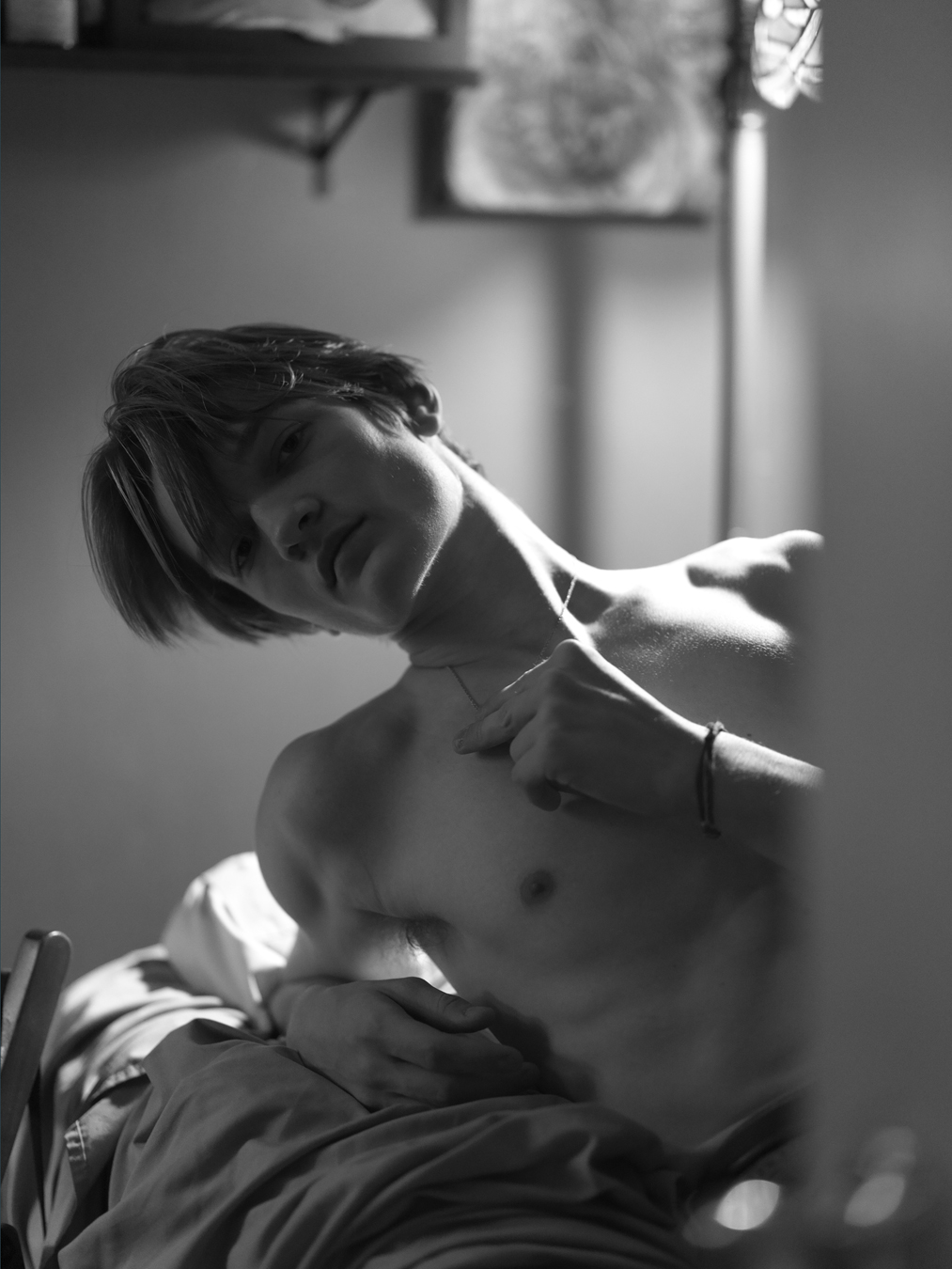
Anne: Which ones?
David: Well, early on it was The Blue Lagoon, Blade Runner, The Terminator and Working Girl. I love Melanie Griffith. I’d love to photograph her. I’m not at that stage of my career yet, although I’m working toward it. A lot of the things I make are out of nothing. The lighting, I figure out from nothing. The clothes I figure out from nothing. Sometimes I work with stylists, but I haven’t gotten to that point yet where someone walks in with racks of clothes from the current collections. I’m waiting for that. I love fashion. I love the weirdness of fashion. In general, I just like people that aren’t afraid to go into new places, and that could be Franca Sozzani or Quentin Tarrantino. I’m doing a huge project for Printed Matter at the moment where I’ve collected all these physique magazines from the 1900s to the 2000s, and I’m recontextualising them into what they were, which was an actual experience. These were flesh and blood people. They had hearts and lives and a lot of them died during the AIDS epidemic. It’s talking about what it means to be sexualised, and to sexualise something, and for us to participate in that. What is pornography, and art, and what’s the difference?
Anne: Fashion can sexualise things in such a weird way. It’s so often neat and tidy which isn’t real. People often don’t want to think of sex as something intelligent either – or serious.
David: I think about it all the time. I try to find any book that discusses sexuality and photography, nudity and photography – homosexuality in particular and photography. Every time I go to a museum I think about all the nudity in the sculpture and the paintings, and I watch the people looking at those works of art and not being offended because it’s contextualised. And I think that context is really important. The same image can be perceived differently in two different magazines. But we’re all sexual beings. We’re all naked under our clothes. We’re all thinking about it together anyway. So, why don’t we do some uncovering? I guess for me, it’s a lot about growing up and not feeling okay with who I am and wanting to create something about not hiding who you are. I remember when I was really young, Keith Haring was nude in Vanity Fair. It was probably 1986, and my mom tore that page out and hid it under the couch and I found it and I was like: “Why did she tear out this nude man?”
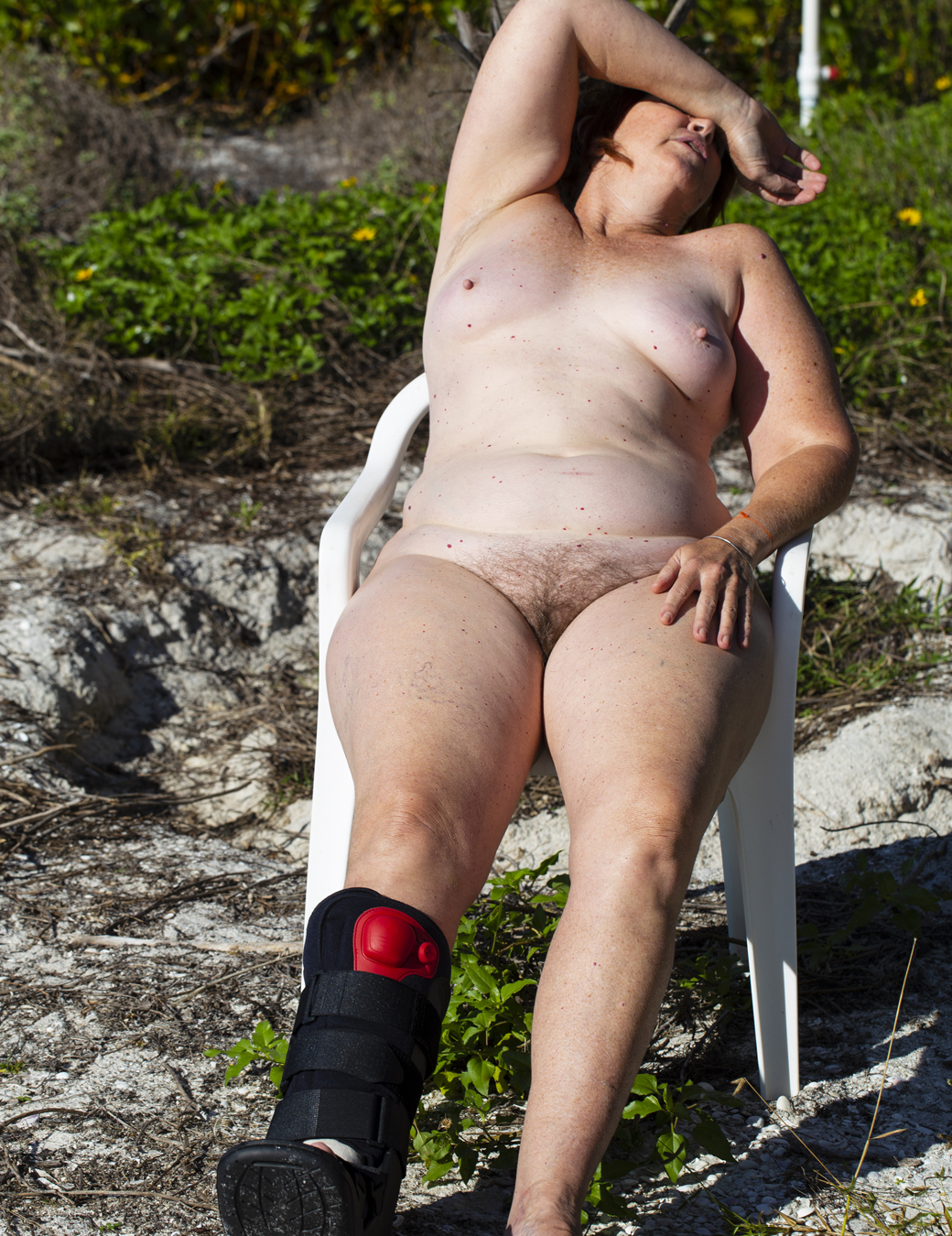
Anne: My grandmother cancelled her Vogue subscription in the 80s because, all of a sudden, there was too much nudity for her.
David: I was in this small town, being beaten up and made fun of and yes, at some point I was going to end up being publicly gay – which I wasn’t at that point – but also at that exact time there was all this stuff going on in New York and San Francisco, and this project at Printed Matter is a bit about that too. All these things exist simultaneously. I made a zine called Gay Sex is the Answer a while ago, and Jonathan Anderson had it on his website for four years, on his little bookstore, and that zine came from me searching for images of pornography where it looked like people were really enjoying themselves. It’s about an idealised fantasy in a world where beings are also murdered for being gay. How does the nudity in my images or the sexuality feel to you? How does it make you feel?
Anne: It depends. I think that picture with the guy where he’s just wearing that coat is genius. And sometimes nudity can seem almost brave in certain contexts.
David: I mean, if you look at fashion magazines today – and I pretty much look at all of them – there is a lot of female nudity. A lot.
Anne: Right, but it’s mostly pretty and perfect bodies. You know what I mean? I think certain parts of that culture are changing, though.
David: I think a lot about what’s acceptable for a woman in a photograph, versus what’s acceptable for a man, and where the line is then crossed. I’m moving from thinking about masculinity specifically to gender and identity more generally: what ties it together is that I’m simply trying to make something beautiful, and trying to find the universality in that.
Anne: Ideas around beauty are changing, right, maybe with this generation? Look at TV shows like Euphoria and We Are Who We Are, for example – the kids are all very different, and through them, you end up understanding sexuality and beauty in a very different way. And it reminded me of what you’re trying to do.
David: When you’re trying to make images like these, it’s not always simple. It’s all about agreement and consent and figuring out a way that people will feel respected. You’re making this very provocative, edgy and risky work in the most controlled environment possible. I like those boundaries though. I want everyone to be on board. Fundamentally people want to feel expressed, they want to feel seen, and people put themselves out there in the world in a very sexualised way anyway. So what I do is just part of that conversation, and is also a conversation with having grown up in such a confined and controlled way, and with such concern around my identity and sexuality. It’s all these things, and then it’s also about making the work in the most responsible way.
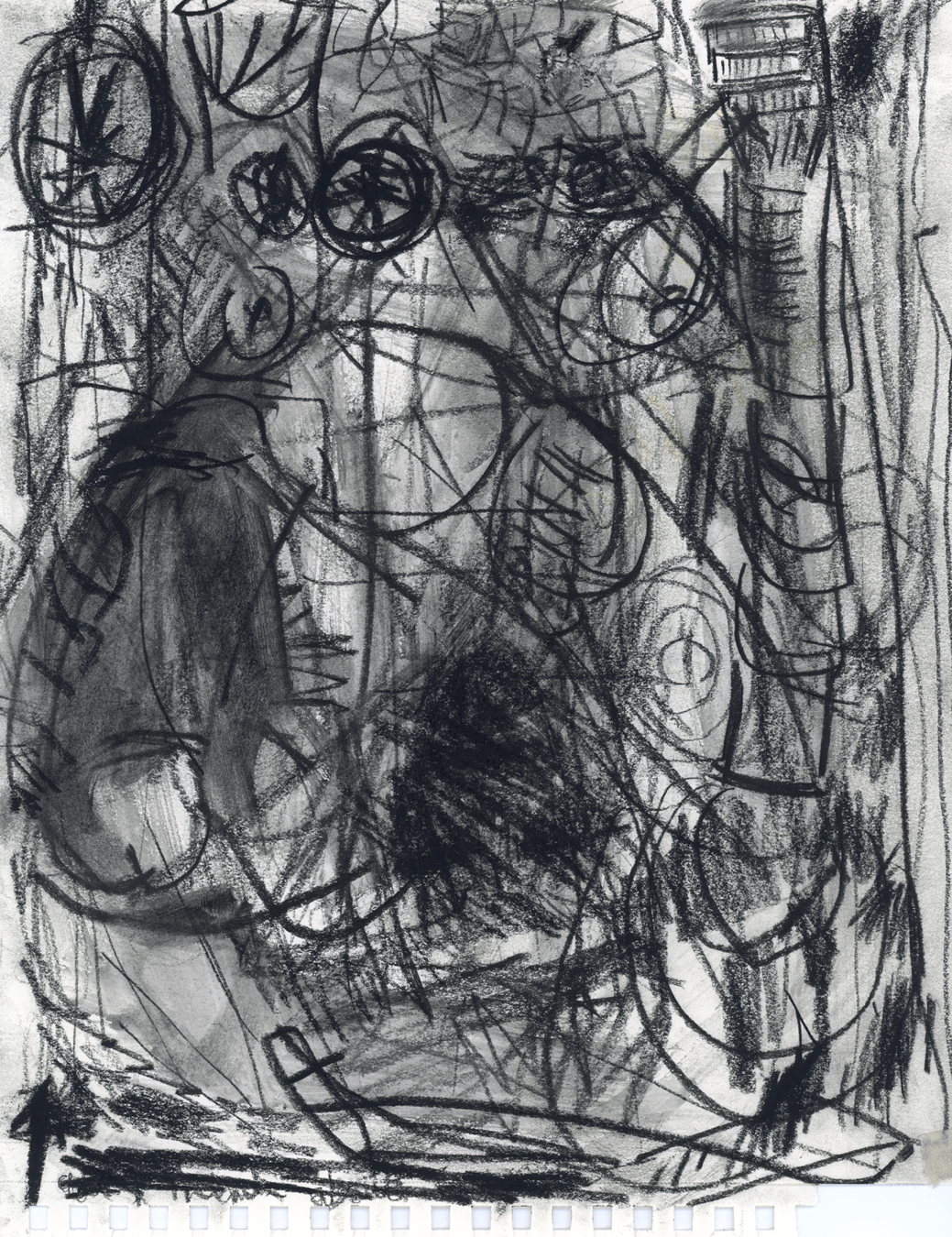
Anne: Those oppositional things create tension, and they are usually causing the thing to be interesting. I know everyone has anxieties, but you seem to work in such a free way. There’s a rhythm to it. You can see where it is going, you can see the possibilities in your work.
David: Each time I do a photoshoot, it leads me to the next place. I’m kind of feeling it, following the musicality of the work itself, if that makes sense. I love to work and I wish I had even more opportunities to work, especially in the way I want. But I’m at the point now where…
Anne: You kind of need a challenge.
David: Yeah. I have so many ideas and such a passion for it. I’ve been doing this by myself with the models and the subjects for so long that I’m really excited and ready to play with other people. I’m ready to see what happens if I get paired with a great stylist, or a great make-up or hair artist. I’m excited to see what I can do with bigger tools, in different contexts.
Anne: What about the drawings you’ve been making?
David: They’ve been made over the last few years, partly from life drawing classes. I’m challenging myself. I’m so repressed that my art is all about expression.
Anne: Whereas I’m repressed and so is my art.
David: No, your art is not repressed at all.
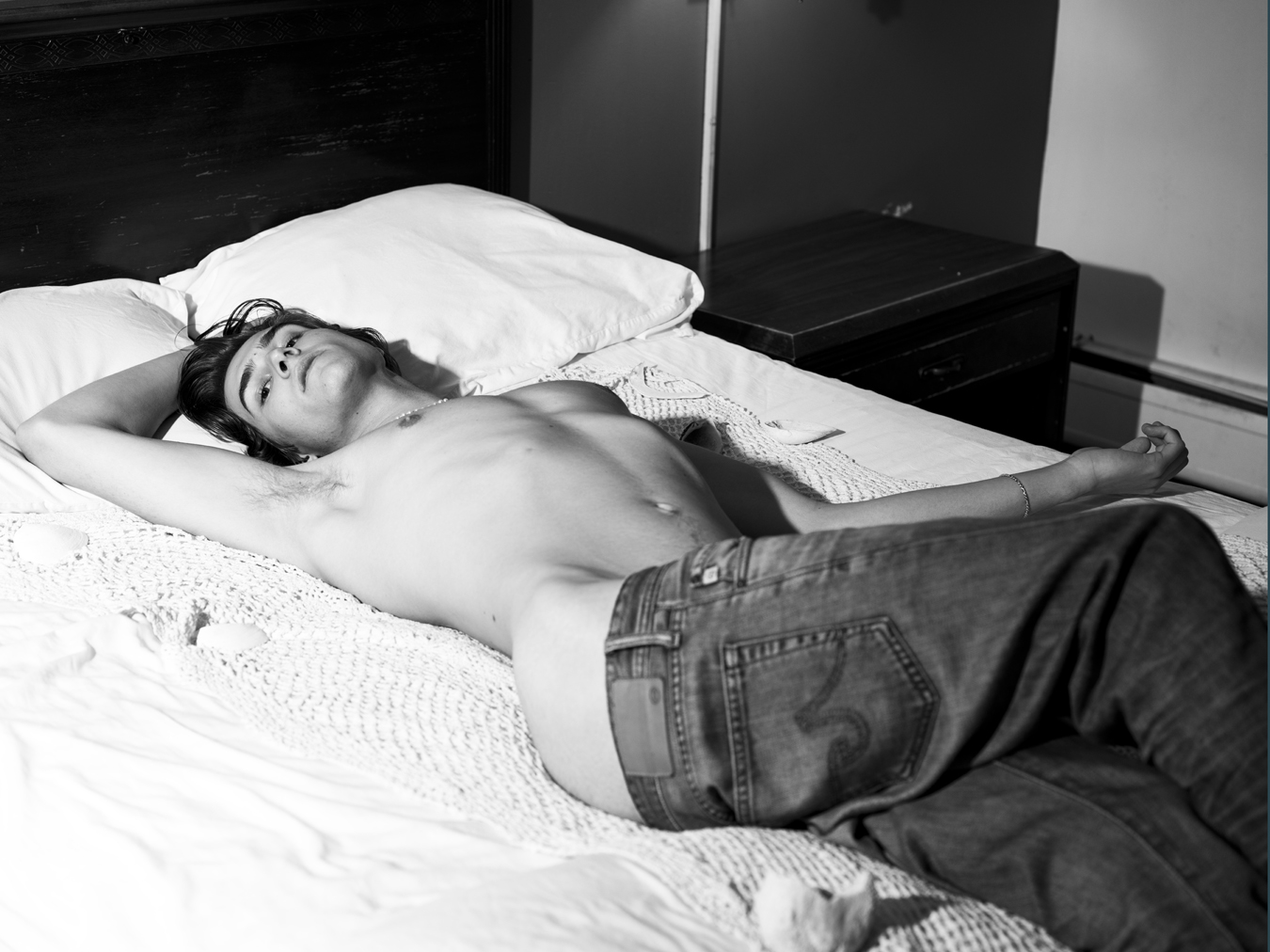
Anne: It is.
David: Your art is amazing. But life drawing classes allowed me to go into something that made me uncomfortable, to express feelings inside, and try not to contain or hold onto anything. I’m actually looking for something beyond that: I’m looking for the energy that’s actually existing between me and that subject. And then what that manifests into by us both showing up.
Anne: Right. And that’s a perfect way to describe working with other people.
David: Sometimes when I’m shooting people I’ll lay out all my clothes for them and let them pick something to wear. It’s fascinating to see what people are drawn to, what their idea of themselves is in this context where they are allowed to perform a different version of themselves.
Anne: And what’s performing, what’s mimicry and what’s candid? I think that’s where it starts to be hard to decipher – in a good way – in your work. Where those things aren’t so clear. Also, it’s quite hard to have your picture taken. Or at least I find it quite difficult. I mean, it’s supposed to be fun, but I actually kind of hate it. But you seem really good at getting people excited about it.
David: Well, I’m looking for the undiscovered country in somebody. I’m looking for what doesn’t get seen that often. I’m looking for intimacy. I’m looking for harmony with the person I’m taking photographs of. I want some connection with them. My favourite thing is to compare the first and last images from a shoot because you can see the distance travelled.
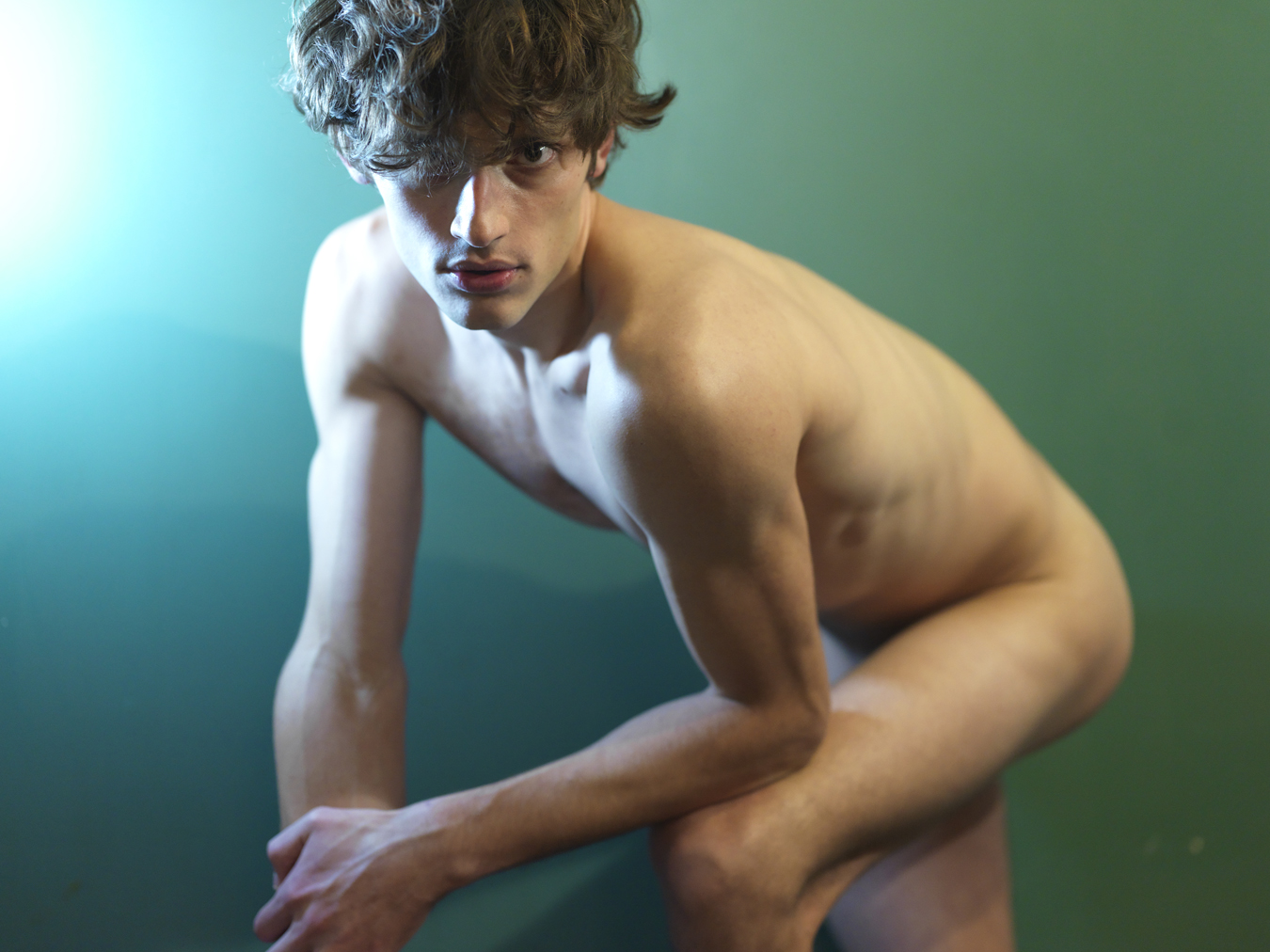
Follow i-D on Instagram and TikTok for more photography.
Credits
Interview Anne Collier.
Intro Felix Petty.



